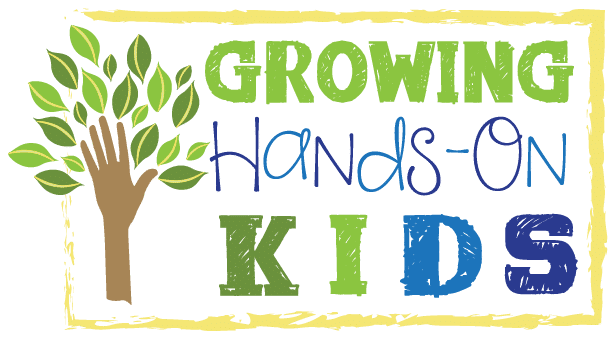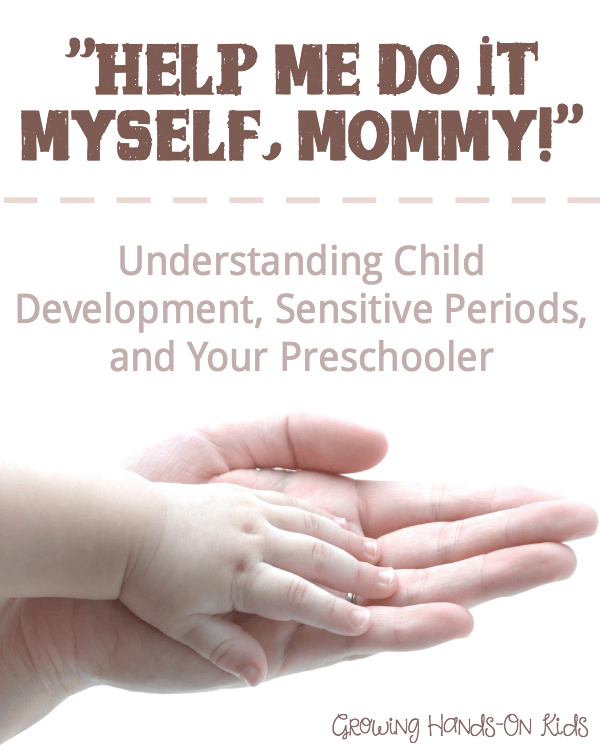“Help Me Do It Myself Mommy” – Understanding Child Development, Sensitive Periods and Your Preschooler
Affiliate and Referral links are used below to promote products I love and recommend. I receive a commission on any purchases made through these links. Please see my disclosure policy for more details. As an Amazon Associate, I earn from qualifying purchases.
It was just one of those bad parenting days, you know the ones where every little thing just gets on your nerves. I woke up in a bad mood (being 31 weeks pregnant with little sleep didn’t help) and even the essential oils in the diffuser were not helping me much.
The entire day was filled with “Mommy, I want…” or “Mom… Mom… Mom!” And I had little patience. We got through the morning as best we could and made it to quiet time (which I may have let go a little longer than normal).
But even after quiet time, it continued. I was done and ready for bedtime by 4:00 pm!
She seemed to be getting into everything; the kitchen sink, her toys strung all over the floor. Then began the pouting when I didn’t let her have something.
Bedtime finally came and I was more ready for it than she was I’m sure. We made it through our little routine and I closed the door in relief.
Have you ever had a day like this? If you're a parent to any child I’m sure you have. But something hit me that evening to make me realize it really wasn’t all her fault. The problem was ME.
“Help me do it myself, Mommy”
Many people associate Montessori with The Absorbent Mind, sensitive periods, and also allowing for independence in learning. These are all things that I knew about and am trying to implement with my daughter in our home and future homeschooling.
As I sat reading through the course I started reading about the specific human tendencies and how they relate to the sensitive periods that Montessori refers to in her work.
What are these human tendencies?
- Exploration
- Orientation
- Order
- Imagination
- Manipulation
- Control of Error
- Communication
Every single person from the time they are born cycle through these tendencies. As I began to read the explanation of them all and how then sensitive periods of learning fit into these tendencies, it hit me as to why we had had such a HARD parenting day.
My daughter was really telling me “Help me do it myself Mommy.” When she was digging through the sink of dirty dishes wanting to clean them and I got annoyed, she was actually, in her own way, letting me know “Hey mom, this is something I want to learn how to do, show me how to do it myself.” And in my hurried and impatient state, I had ignored this.
As I looked back on our day, I realized I had been doing this ALL DAY with her. She had been wanting to clean the floors, wash dishes, and other things but I had ignored and just kept on going with the day.
Understanding Child Development, Sensitive Periods, and Your Preschooler
When a child is in a sensitive period of development and that need is not fulfilled they often act out. So our entire day, I kept feeling like my daughter was acting out just to get me, but in reality, she was acting out because I had not allowed her the time or independence to fulfill her need to learn these skills.
I went to bed that night determined to start the next day better. We came downstairs the next morning and I had her get her own breakfast items out, including putting her waffle in the toaster. Then I showed her how to put the peanut-butter on her waffle and she finished. Did the peanut-butter get put on “perfectly?” Of course not, but in her own little 33 month old way she did it and was so proud of her accomplishment.
That afternoon I had her help me put dishes away and then allowed her to stand on the step stool and rinse dishes off for me so I could put them in the dishwasher. The change over both of us was so apparent. I was allowing her the freedom and independence to help and learn that I had not allowed her to have the day before. And in return, she felt fulfilled and happy and was more focused throughout our day.

Heather Greutman, COTA
Heather Greutman is a Certified Occupational Therapy Assistant with experience in school-based OT services for preschool through high school. She uses her background to share child development tips, tools, and strategies for parents, educators, and therapists. She is the author of many ebooks including The Basics of Fine Motor Skills, and Basics of Pre-Writing Skills, and co-author of Sensory Processing Explained: A Handbook for Parents and Educators.

